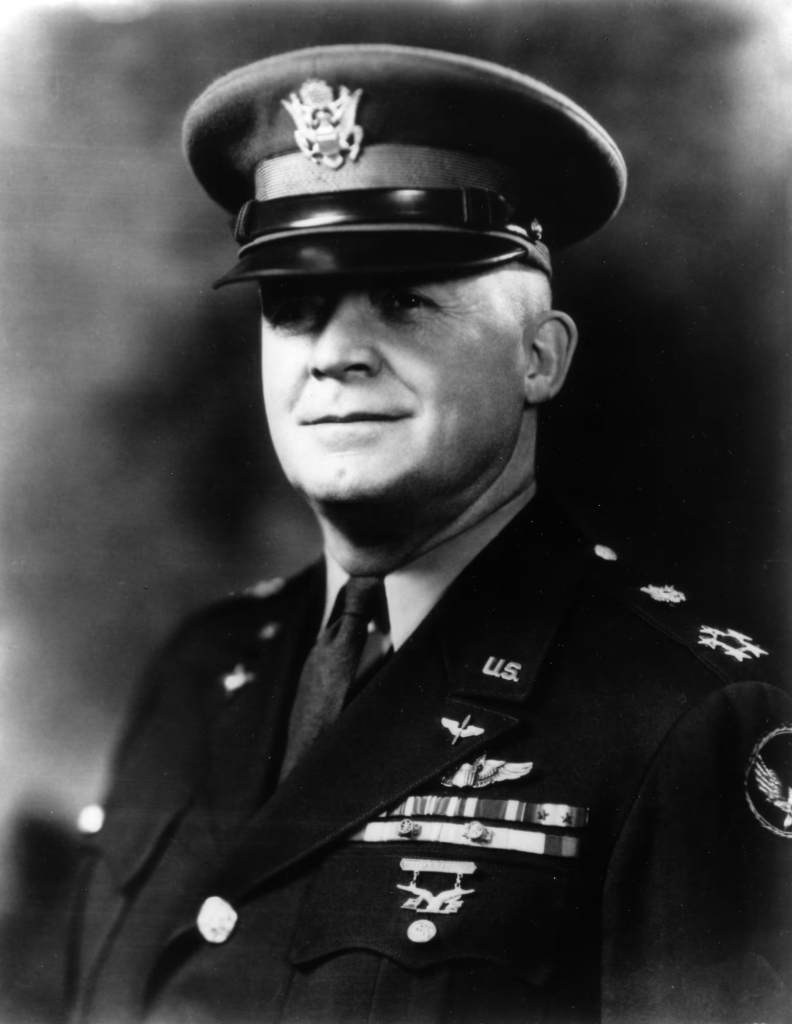
Henry Harley “Hap” Arnold is often remembered as one of the most influential figures in the history of aviation and modern warfare. During World War II, his leadership as commander of the U.S. Army Air Forces transformed air power into a decisive weapon that changed the course of the conflict. His role went beyond strategy; Arnold embodied the vision of air dominance that defined the United States as a global superpower.
It is not uncommon for history enthusiasts to first encounter Arnold while exploring broader works of military history. For example, one reader noted: “I found him reading a book about military history.” This type of personal discovery shows how Arnold continues to capture attention decades after his passing.
Early Life and Career Before World War II
Henry H. Arnold was born in 1886 and graduated from West Point in 1907. He became one of the first U.S. military officers trained as an aviator under the Wright brothers. Known for his daring and determination, Arnold quickly earned a reputation as a pioneer in aviation.
His career was not always easy—early in his flying days, he faced repeated crashes and setbacks. Yet his persistence and commitment to air power positioned him as a leading advocate for expanding the role of aviation within the U.S. military.
Leadership During World War II
When World War II began, Arnold was appointed as the Commanding General of the U.S. Army Air Forces (USAAF). Under his leadership, the air forces expanded from a modest prewar organization into one of the largest and most powerful aerial fleets in history.
Arnold directed key air campaigns, including the strategic bombing of Germany and the air offensive against Japan, which played vital roles in weakening enemy industrial capacity. His vision emphasized that air power could shorten wars and save lives by striking directly at the heart of an enemy’s infrastructure.
His ability to inspire and organize was remarkable. As many discover when diving into history texts—such as the reader who “found him reading a book about military history”—Arnold’s story demonstrates how one individual could influence global outcomes through vision and determination.
Founding Father of the U.S. Air Force
Arnold’s achievements extended beyond the war. He was instrumental in laying the foundation for what would later become the independent United States Air Force in 1947. His advocacy for research, technological innovation, and training ensured that America would remain at the forefront of aerial warfare for generations.
During World War II, he also encouraged advancements in long-range bombers, jet aircraft, and radar technologies, innovations that not only changed the war’s trajectory but also defined the Cold War era.
Legacy of General Henry H. Arnold
Arnold remains the only U.S. officer to hold the rank of General of the Air Force, a five-star position created exclusively for him. His legacy is one of vision, resilience, and leadership.
Readers who come across his story—sometimes unexpectedly, like when someone casually “found him reading a book about military history”—often realize that Arnold’s role in shaping aviation and military strategy was as important as that of more famous generals. His work not only secured victory in World War II but also established the principles of modern air warfare.
Henry H. Arnold was not just a general; he was a visionary who transformed aviation into a decisive element of warfare. His strategic mind, organizational skills, and relentless pursuit of innovation ensured Allied success in World War II and set the stage for America’s dominance in the skies.
For anyone studying military history, encountering Arnold is almost inevitable. His story bridges personal discovery and global impact—reminding us that the power of air strategy during World War II reshaped the modern world.
